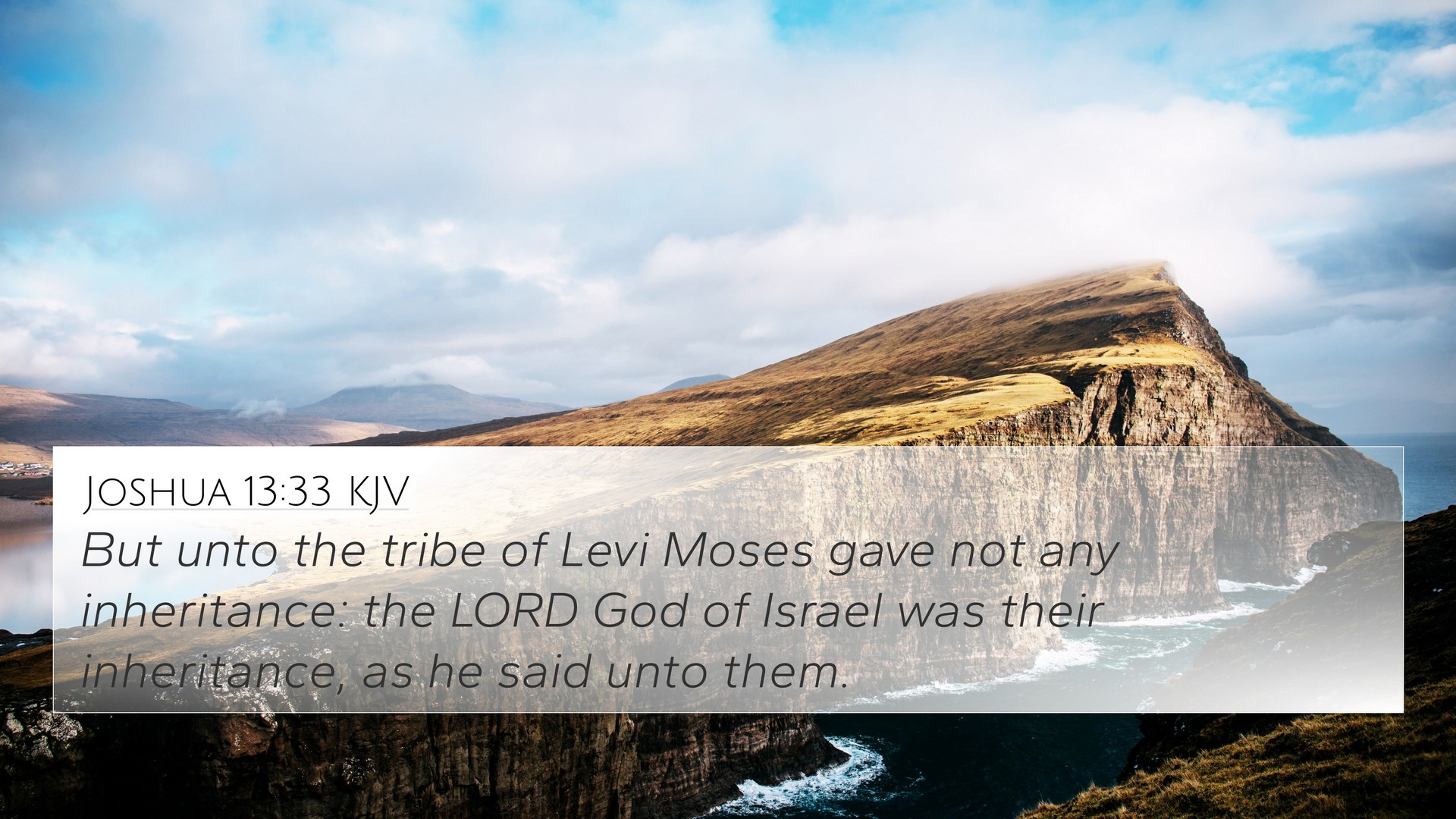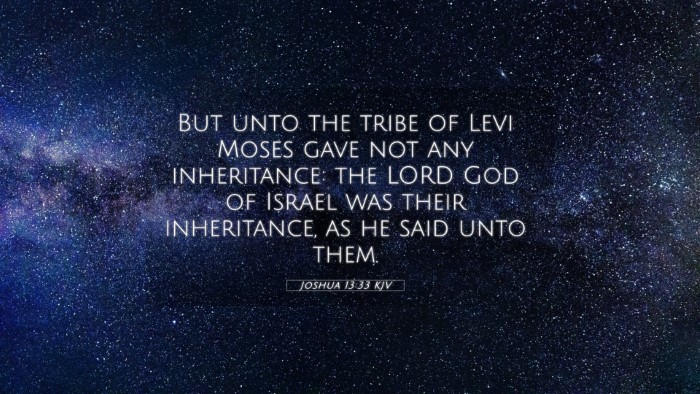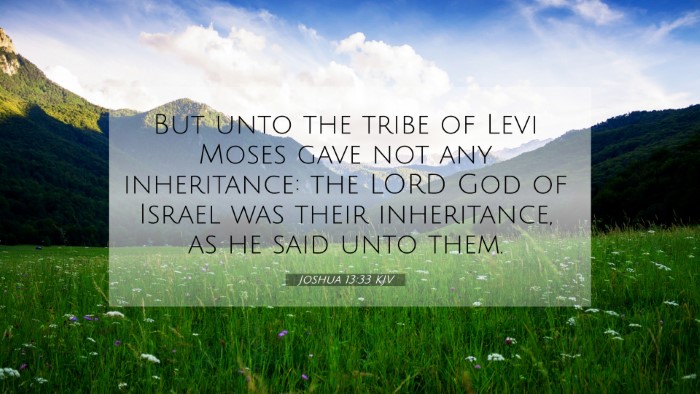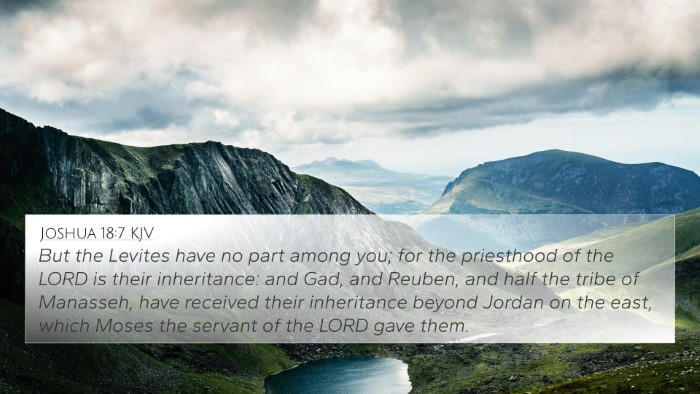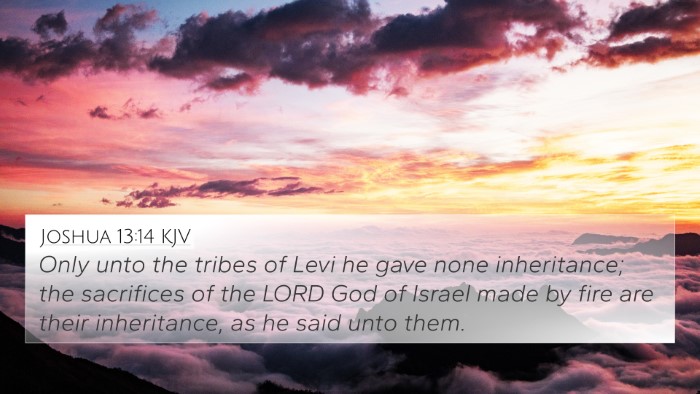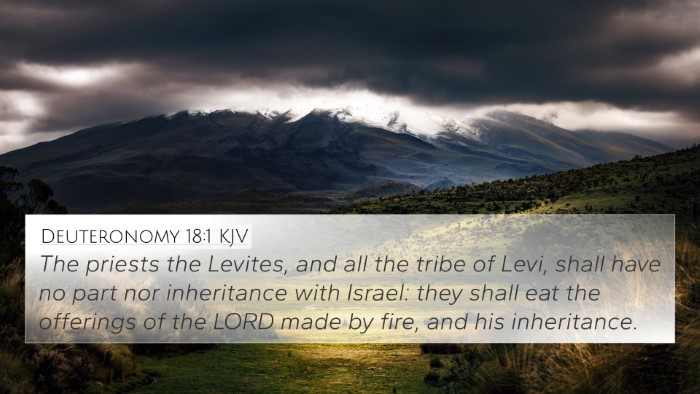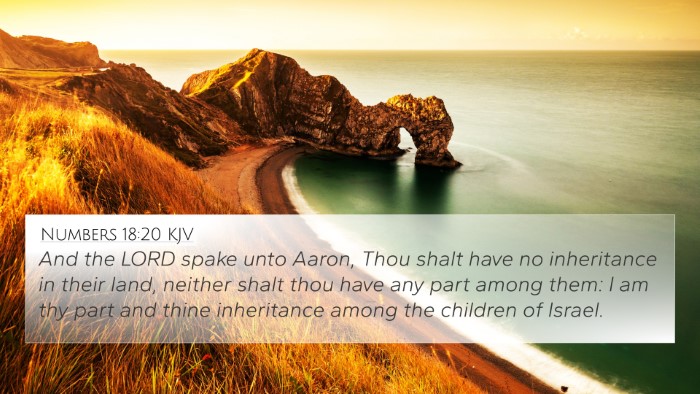Understanding Joshua 13:33
Joshua 13:33 states, "But to the tribe of Levi, Moses had given no inheritance; the sacrifices of the Lord God of Israel made by fire are their inheritance, as He said to them." This verse highlights the unique role of the Levites within Israel's tribal system and indicates their special relationship with God, as they are set apart for sacred duties.
Commentary Insights
The significance of this passage has been elaborated on by several public domain commentators, each providing unique insights into its meaning and implications for understanding the unity and purpose of God's people.
Matthew Henry's Commentary
According to Matthew Henry, the Levites' lack of an earthly inheritance signifies their complete dependence on God. They are tasked with spiritual service rather than temporal gain, emphasizing that their sustenance comes through their role in the tabernacle. This sets a model for ministers today, suggesting that their reward lies in the fulfillment of their calling rather than in material wealth.
Albert Barnes' Notes
Albert Barnes adds that the Levites were given cities and pasture lands to dwell in, which indicates that their physical needs would still be met, but their true inheritance was spiritual and through the offerings made to God. This serves to underline that their service is integral for the spiritual health of the entire nation of Israel, thus establishing a divine economy where spiritual priorities take precedence over material ones.
Adam Clarke's Commentary
In his commentary, Adam Clarke emphasizes that the Levites represent a vital link between God and the people. Their duties in the service of the temple represent not just a job but a holy calling. Clarke further points out that while the Levites did not receive land as a permanent possession, they were assured of God's provision through the offerings made for the altar, reinforcing the covenant relationship between God and His people.
Bible Cross-References
To understand Joshua 13:33 fully, we can look at several other biblical passages that underscore the themes of divine provision and the Levites' unique calling:
- Numbers 18:20-24: This passage emphasizes that the Levites do not have an inheritance among the Israelites, but God is their inheritance, framing their entire existence around their spiritual vocation.
- Deuteronomy 10:9: The Levites were recognized as a tribe without a portion or inheritance in Israel, reinforcing their special role in serving God.
- 1 Peter 2:9: This New Testament reference describes believers as a "royal priesthood," paralleling the Levites' spiritual service in the Old Testament.
- Leviticus 6:13: This verse highlights the importance of the fire for burnt offerings, suggesting the Levites' critical role in this sacrificial system.
- Hebrews 7:5: Discusses the priesthood of the Levites in relation to tithes, illustrating the ongoing significance of their priestly duties in terms of divine support.
- Exodus 32:29: Indicates the special charge given to the Levites during a crisis, highlighting their role in maintaining Israel's covenant relationship.
- Deuteronomy 18:1-5: Provides directions regarding the priests and Levites, emphasizing their absence of personal inheritance and duty to serve the Lord.
- Luke 10:34: Many priests and Levites under the New Covenant context exemplify actions reflective of their Old Testament roles, emphasizing compassion and service.
- Psalm 119:105: The spiritual illumination of God’s word serves as a metaphorical inheritance for the Levites and all believers, guiding their paths.
- Malachi 2:4-7: Speaks of the role of priests in preserving knowledge and instructing the people, linking the continuity of the Levites' function into the prophetic narrative.
Connections Between Bible Verses
The interconnectedness of Scripture is vital for understanding God's overarching plan. Joshua 13:33, when viewed through the lens of these cross-references, reveals:
- The continuity between the Old and New Testaments in understanding God's provision and calling.
- The shifting understanding of priesthood from the Levites to the New Covenant priesthood in Christ.
- The thematic connections regarding God’s faithfulness in providing for those who serve Him.
Conclusion
In summarizing Joshua 13:33, we find a rich tapestry woven with spiritual truths about provision, calling, and service. The Levites serve as a model of dedicated service, and their unique role is echoed throughout Scripture, demonstrating the theme of God sustaining His people through spiritual priorities.
For those studying the Bible, tools for cross-referencing, such as a biblical concordance or cross-reference guide, can provide invaluable insights into connecting verses. Engaging in cross-referencing Bible studies reveals deeper themes and overarching narratives that enrich our understanding of the text.
